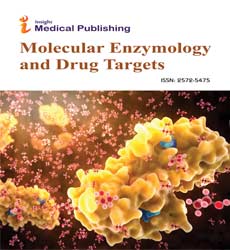Abstract
Asia Pharma 2016 : Latest approaches to patient counseling in the pharmacies! - Aref Alabed - Northampton University
There is no doubt that patient counseling has a positive and significant impact on the patient's knowledge when visiting a pharmacy. Research proved that 8 out of 10 patients cannot remember what the doctor told them about their prescribed medication! What is it? How should it be taken? Also what if the patient forgot to tell the Doctor about the medication they take at home? This would then result in a drug-drug interaction with the new prescribed medication! Can you imagine that only 20% of what you tell the patient is scientific knowledge, the other 80% is all about counseling, empathy and education with the patient! Pharmacists do not focus on these skills during their university level because they are busy with developing their scientific knowledge! We also must bear in mind that the majority of patients are not aware that it is the pharmacist who is responsible in giving them all information required with regard to their medication, they think it is only the Doctor’s job. For that reason the pharmacist must always start to counsel the patient, unless the patient shows previous knowledge! During a typical working day for a pharmacist it’s impossible to counsel all the patients, therefore counseling in a written form will definitely come in handy, of course it is not to replace the face to face counseling, it is still very important! Whether it’s through face to face counseling or through a written form at the end of the day all pharmacists should strive for one goal when counseling patients: which is to ensure that patients are well informed about the proper use of their medications?. Pharmacists are required to provide counseling for each new prescription. This helps pharmacists establish that interpersonal relationship with pharmacy customers. It’s an approach that pharmacists in other states, where this is not a requirement, might want to consider. Most pharmacists don't have a lot of time to establish this interpersonal relationship; however, pharmacists can use the time they do have more wisely by restructuring the communication they have with patients. "We've got to mine down to what's causing this patient who has diabetes to not take their medication when their blood sugar is substantially elevated," he says. "Is it because of side effects? Is it because they feel OK and don't realize how serious this is? It is because of the cost of the medication?" When people are ambivalent or resistant to change, it is frequently caused by incomplete or incorrect knowledge. For example, a patient who has high blood pressure may not understand why the medication is needed because he or she feels fine. "A sense leads to a conclusion, which leads to a decision about a behavior. The sense is I feel fine, the conclusion is I am fine, that patients may then choose not to take the medication.
Pharmacists are often charged with educating a patient about his or her prescription, but the entire pharmacy can play a role in promoting those exchanges. "We have clerks and we have pharmacy technicians and they all know how important it is that patient cannot leave until the pharmacist talks with them, adding that this has just become a regular part of the pharmacy's workflow. Pharmacists can also hone their own communication skills by watching the language other pharmacists use during their patient counseling sessions and incorporating effective phrasing into their own scripts. Effective patient counseling isn't just about providing education, it's equally important to make sure that message has been received. "As much as the pharmacist has to have the knowledge of what they are talking about, they have to have the ability to evaluate that it's really being heard. Pharmacists can help foster patient retention of information by asking open-ended questions or even providing resources, such as written instructions, calendars that outline complex dosing regimens, or links to videos that help reinforce a critical skill. The present study reports the lack of education by pharmacist and other health care providers to patients regarding the correct use of prescribed drugs specially inhaler devices and also its impact on patient's AM regimen. In this study, pharmacist's counseling regarding the prescribed medicines at discharge and 1 month follow-up schedule after discharge leads to positive therapeutic outcomes. The primary outcome of this study was significantly increased in rate of medication adherence and subsequently treatment satisfaction of the intervention group compare to the control group. We should take this issue into consideration that patients were educated about the details of each prescribed drug and the technique of use of inhaler devices and the importance of AM regimen in optimizing patient's quality of life. Several studies have highlighted the value of supervision of pharmacist in the therapeutic outcome, so to support patient, pharmacist should ensure about the appropriateness of the pharmacotherapy plan and in addition to that patient must be aware of the costs, side effect and monitoring plan regarding the treatment. Education about the correct and proper use of inhalers is the main point in prescribing these drugs. To optimize the efficacy of medicines, doctors and other health care providers must educate patients.
Author(s):
Aref Alabed
Abstract | PDF
Share this

Abstracted/Indexed in
- Google Scholar
- China National Knowledge Infrastructure (CNKI)
- Publons
- Secret Search Engine Labs
Open Access Journals
- Aquaculture & Veterinary Science
- Chemistry & Chemical Sciences
- Clinical Sciences
- Engineering
- General Science
- Genetics & Molecular Biology
- Health Care & Nursing
- Immunology & Microbiology
- Materials Science
- Mathematics & Physics
- Medical Sciences
- Neurology & Psychiatry
- Oncology & Cancer Science
- Pharmaceutical Sciences
